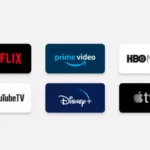When you have an idea about a mobile app, you might be bothered about someone taking it away from you and using it before you can apply it. Fortunately, you don’t need to be concerned about this because of intellectual property laws like patents, trademarks, and mobile app copyright.
These laws can help protect your app idea. But, you might wonder, can you patent your app idea? Several entrepreneurs and startups have used a patent for an app idea to exclude others from selling or using their idea.

Patenting your app idea would help you prevent others from copying it and from those who might steal it. However, you must ensure that your app idea is novel and new if you want it to be subject to patent laws. It shouldn’t be a clone of another app.
So, let’s find out everything you need to know about getting a patent for your app idea.
Is it possible to patent an app idea?
A simple answer to this question is yes. You can patent an app idea because it is an element that has several ways of interaction.
However, you cannot patent the app code because that comes under laws covered by copyrights. Nevertheless, you can patent the procedure and how your app works when performing a particular task.
Steps to take to patent your app idea
The following are the steps you should take to patent your app idea.
Find and talk with a patent attorney
Say, for instance, you live in Arkansas and have a novel app idea that needs to be patented. You will need patent attorneys located in Arkansas to help create a well-formed patent application to increase your chances of success. This is because these attorneys have years of experience under their belts.
Additionally, the process is legal and may involve litigation, so it would be better to use a professional than do it yourself. It isn’t advisable to go with any attorney that you find. Ensure you perform proper research.
Disclosure of app invention
The app idea is just part of the work done. You must bring your idea to actuality, even if it is just a part of it. This will help confirm the idea’s feasibility, which is something that gives your idea an eligibility criterion.
The court would also need tangible proof of your invention. This is so they can provide a patent for your application. Thus you have to ensure that you document all developmental processes.
Additionally, you could also create a prototype of your application. This will help break down the flow. It will also help your lawyer know your application’s flowchart since only the app’s processes and functionality are patented, not the code.
This helps to know the several implications of your app in various industries. It will also help you find other directions for where your app elements might need patenting.
Practice patent search
After creating an app idea, you must perform your homework. First, you should hire a patent lawyer to help you conduct a worldwide search. This is done to determine if there are similar applications to yours or similar flows or functions.
This will avoid infringement from other businesses. It is better to spend a little money to ensure your patent won’t be sanctioned instead of beginning again. An excellent place to start is the USPTO.
File for provisional or non-provisional patent application
For app ideas, you can use two types of patent applications. They are the provisional and the non-provisional patent applications.
If you wish for a fast patent, you can opt for the non-provisional patent application for your app. But, if you aren’t in a hurry, then the provisional patent application best suits you.
Application Submission
This is the last step of patenting an app idea. After performing the above steps, and you already have your patent application, you must file it with the USPTO. This process can be pretty tedious as it involves a lot of paperwork, but it is necessary.
There are several important documents that you might need for this process. They include declaration/oath, specifications, entity status form, information disclosure statement, application data sheet (ADS), claims, drawings, fee sheet, and cover sheet.
How to know if your app idea is qualified for patenting
There are several ways to tell if your app idea qualifies for a patent. Let’s find out how below:
It should be an invention
A patent is used to protect an invention. According to the World Intellectual Property Organization (WIPO), patents are given to inventions that solve problems.
For example, an app idea isn’t a physical object, however, the app process is categorized as an app invention. But, like every other invention, the process must resolve a problem.
The app idea must be new, novel, and unique
An app idea that solves users problems doesn’t necessarily have to be eligible for a patent. However, it is a prerequisite that the app idea must be new and non-obvious.
Your app idea can’t be found in any public format, like pending patent applications, articles, books, or other sources. If it isn’t unique, it won’t be patented.
For instance, you developed an app similar to Uber, which solves people’s problems by letting them book rides in minutes. However, you won’t be able to patent it because it is a clone of the Uber application.
It has to be useful
For your app idea to be qualified for a patent, it has to be qualified as useful. But, this doesn’t mean the idea isn’t under the entertainment category or something similar.
What this means is that your app must, in theory, work. It would be best if you created a detailed and concrete explanation of how the application works to claim ownership of it.
Conclusion
You can patent your app. Not only the idea but also a tangible object proof. To patent an app idea, you are thus shielding it from being copied since some people may want to steal it.
However, your app idea must be new and unique. It will be a wasted effort if your app is a clone of others.
Patenting your app idea is also dependent on your needs. That is, you can patent it when you want to. Nevertheless, app idea patents protect your intellectual property from unconsented usage, copying, and others for about 20 years.
Join 25,000+ smart readers—don’t miss out!







